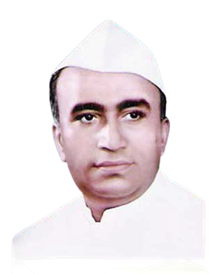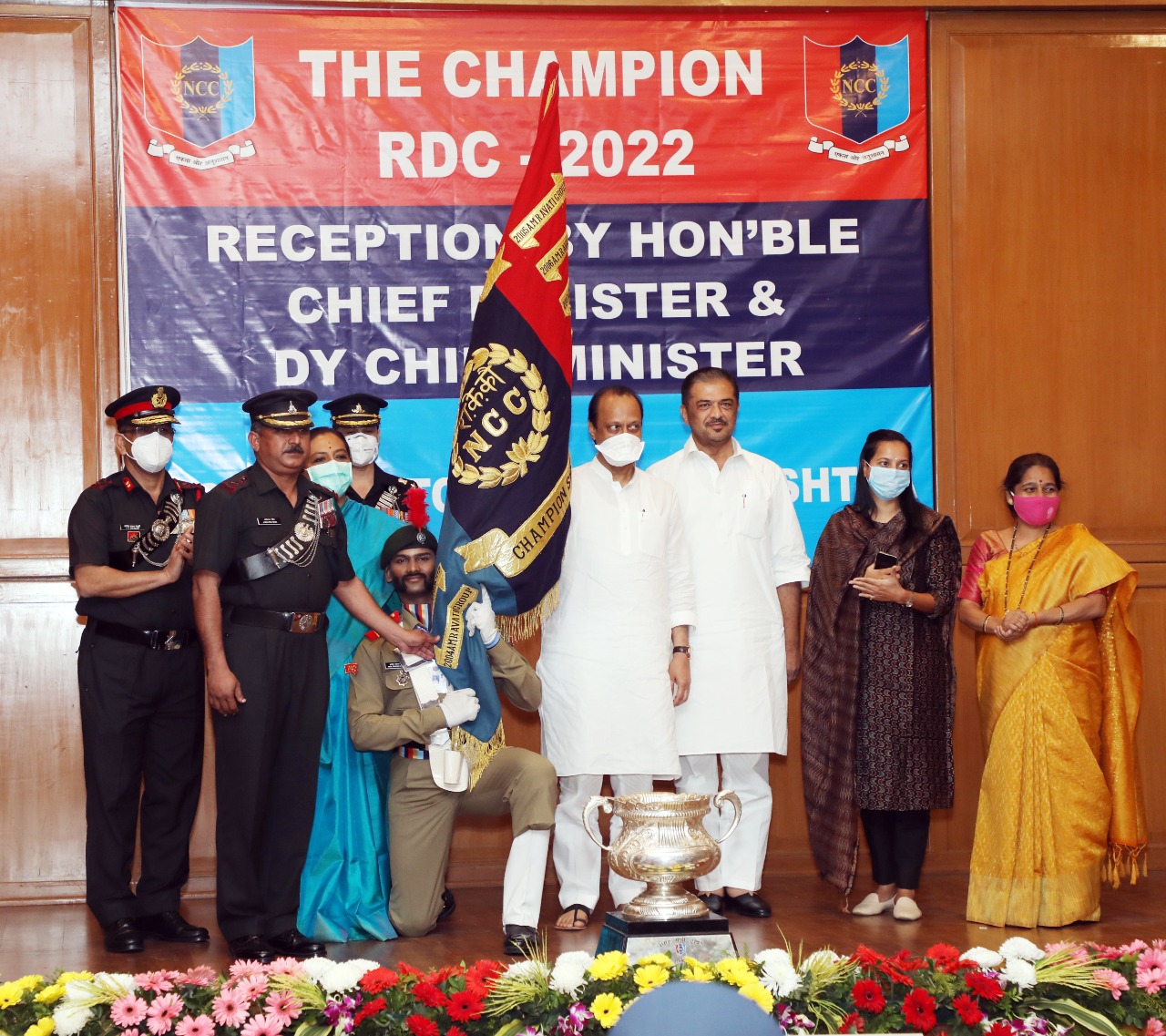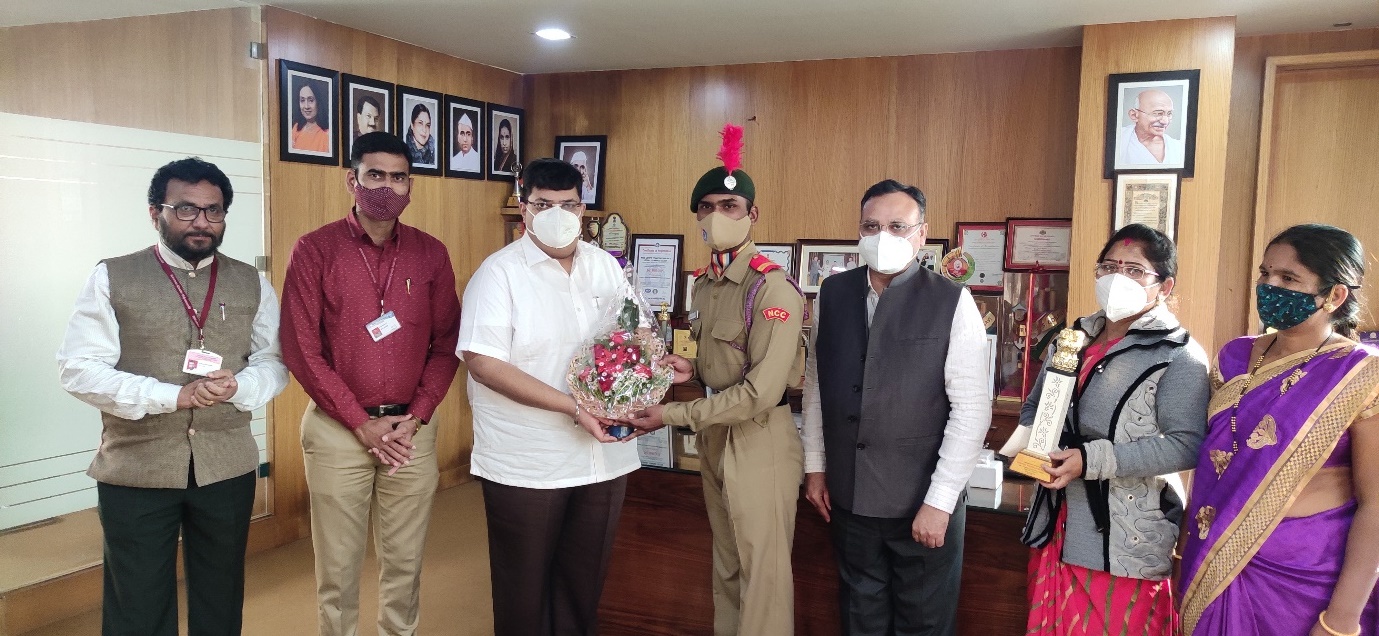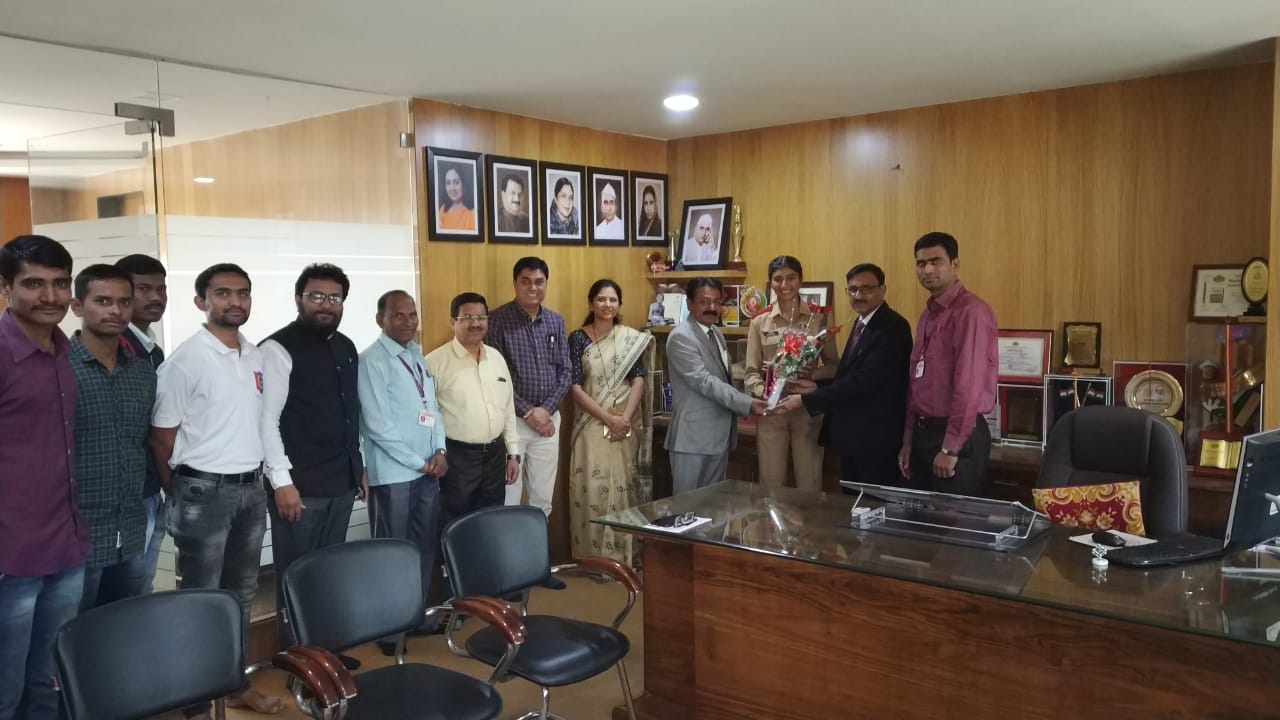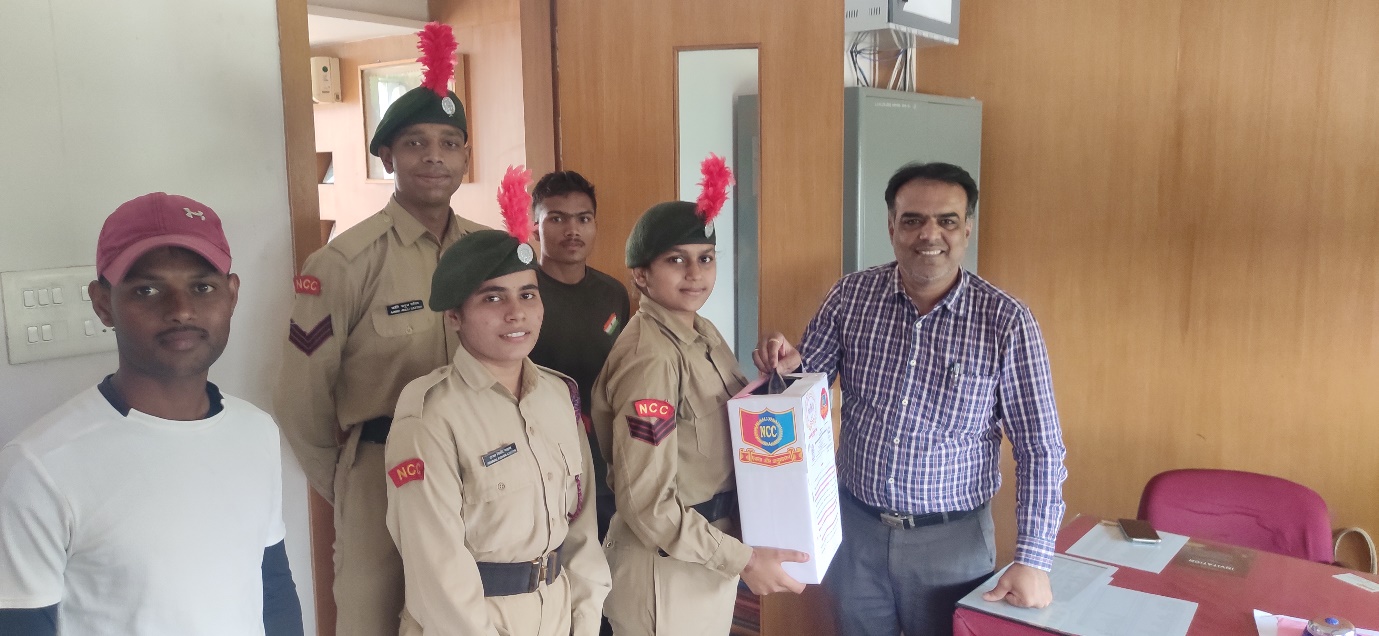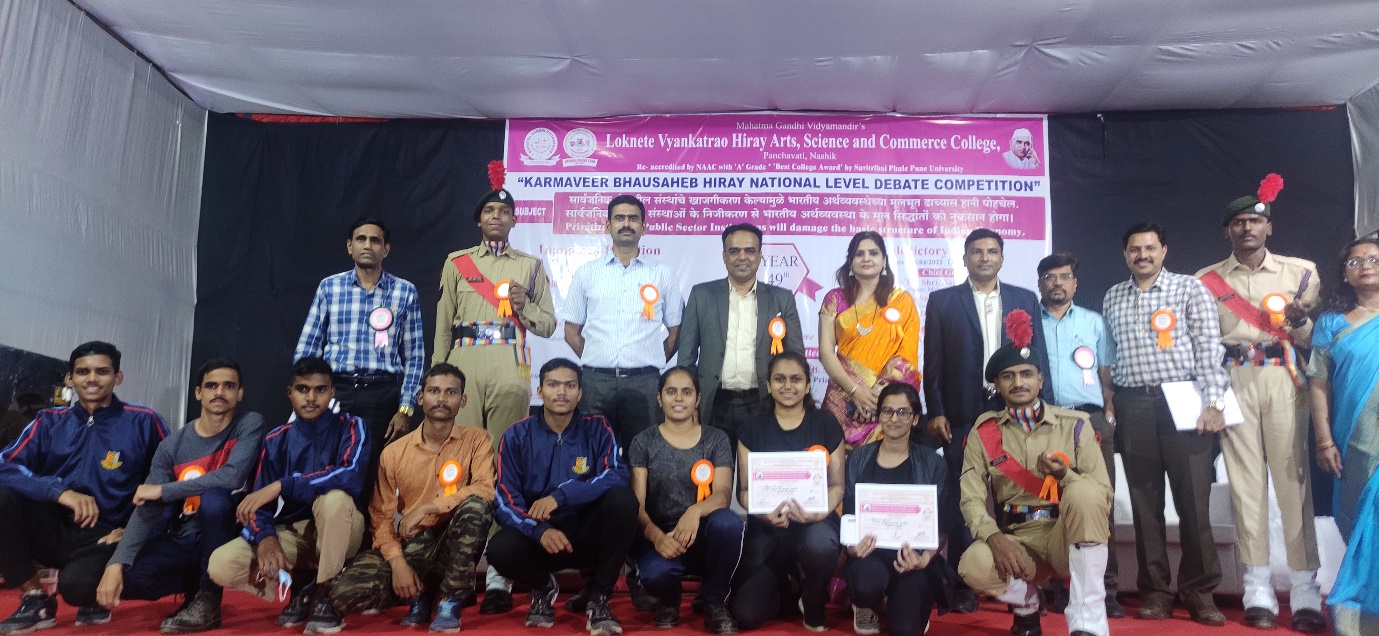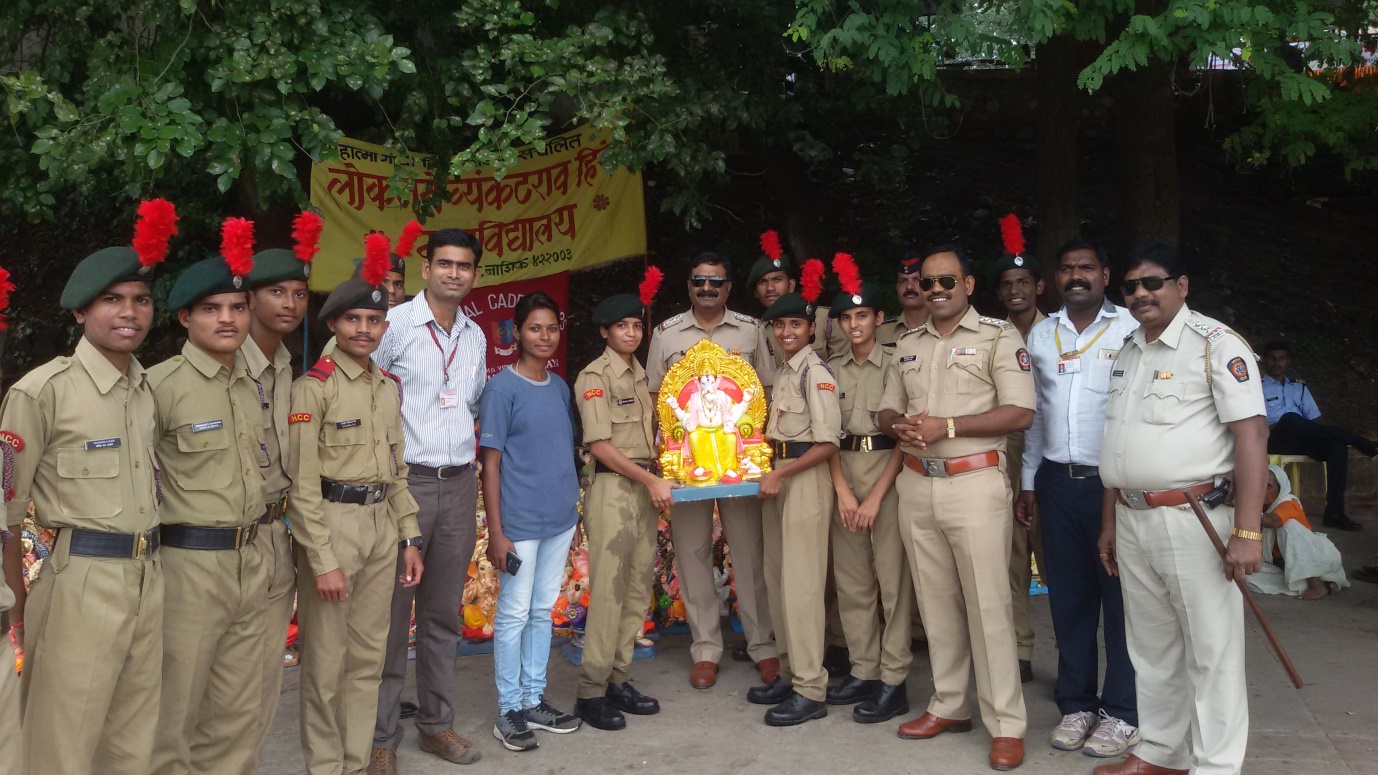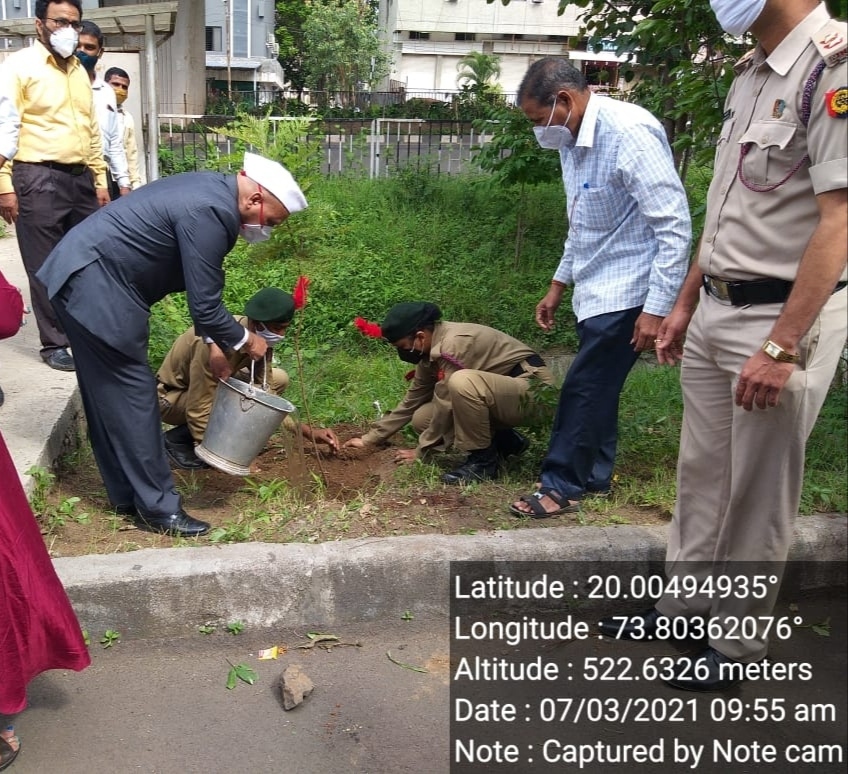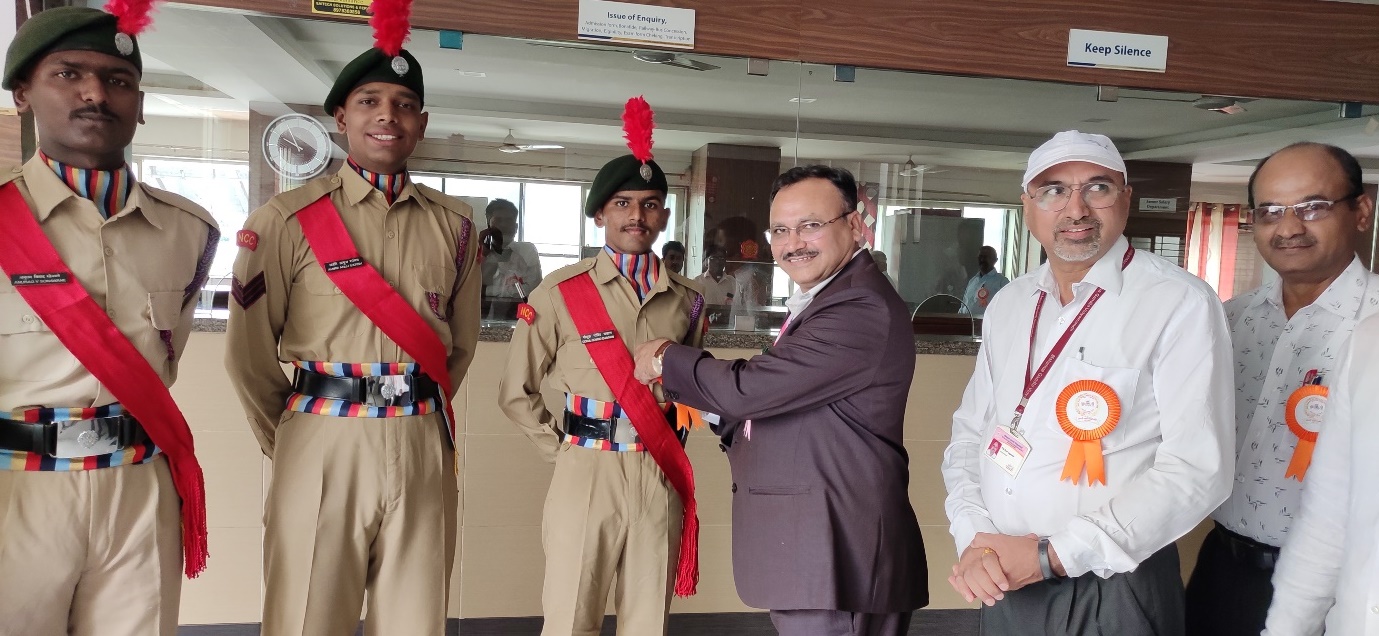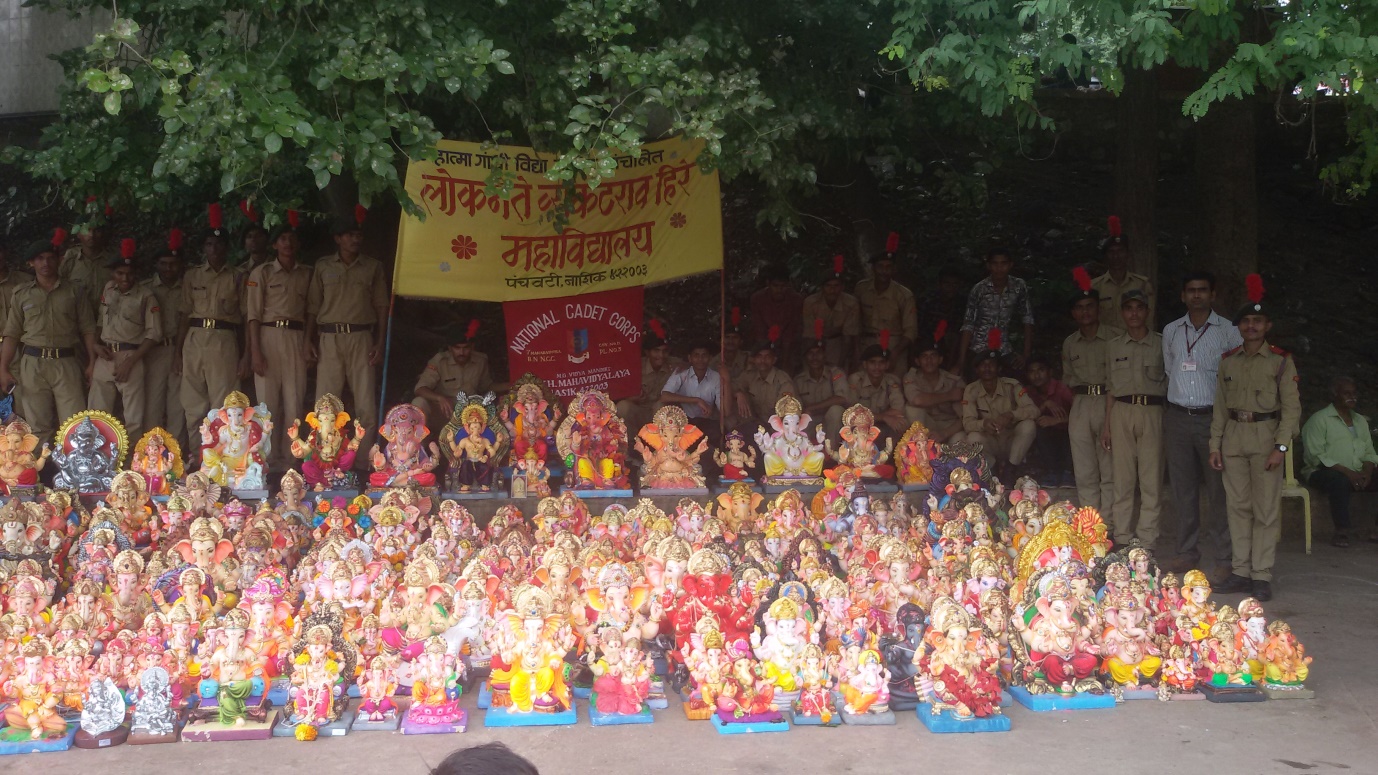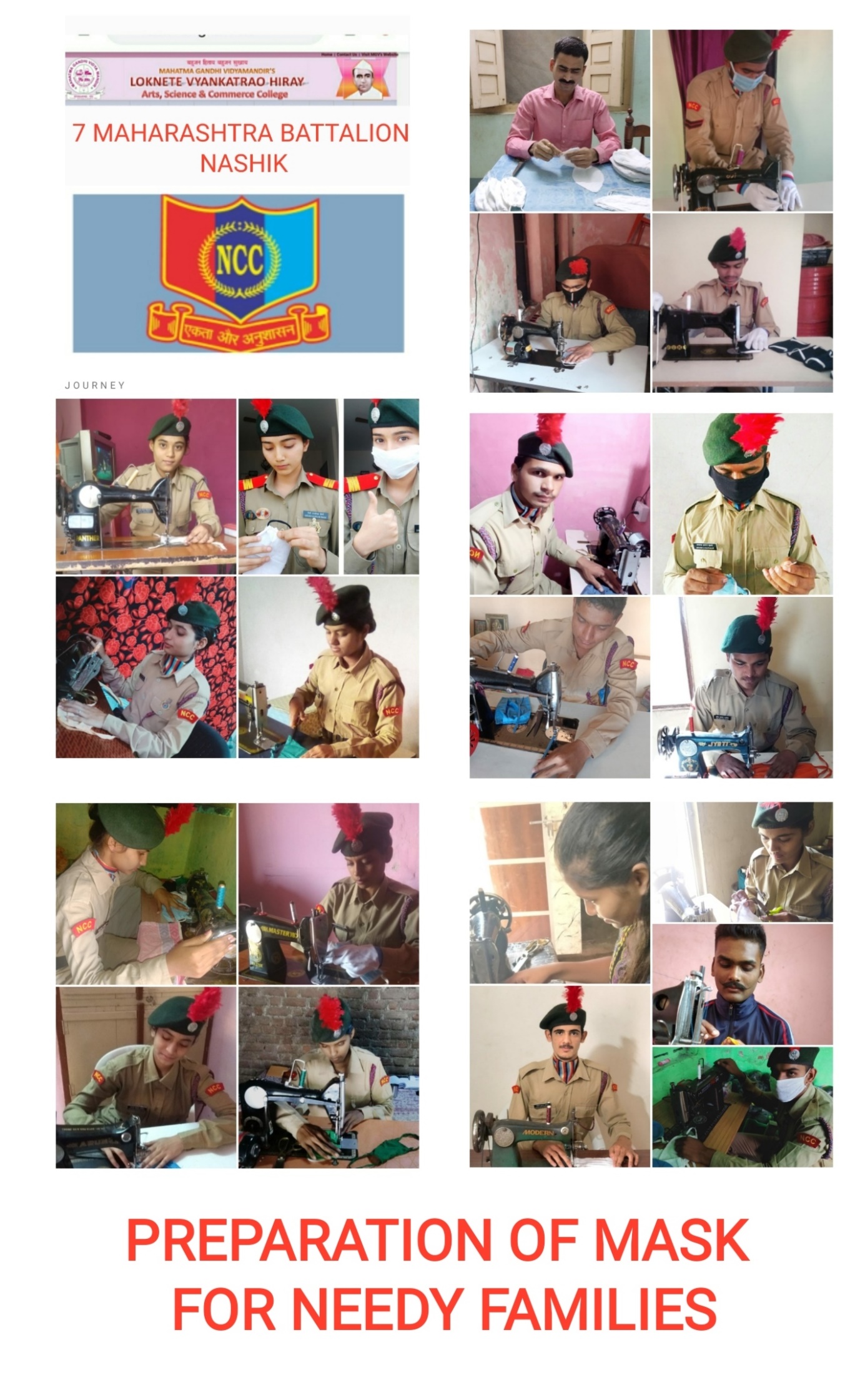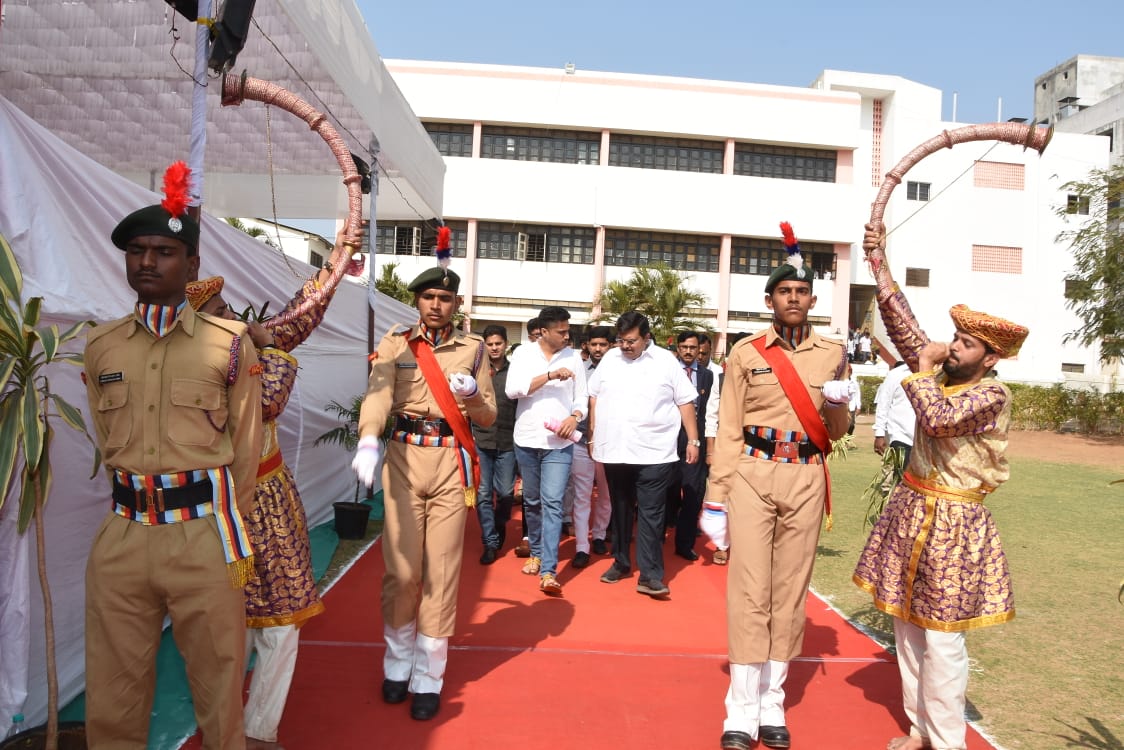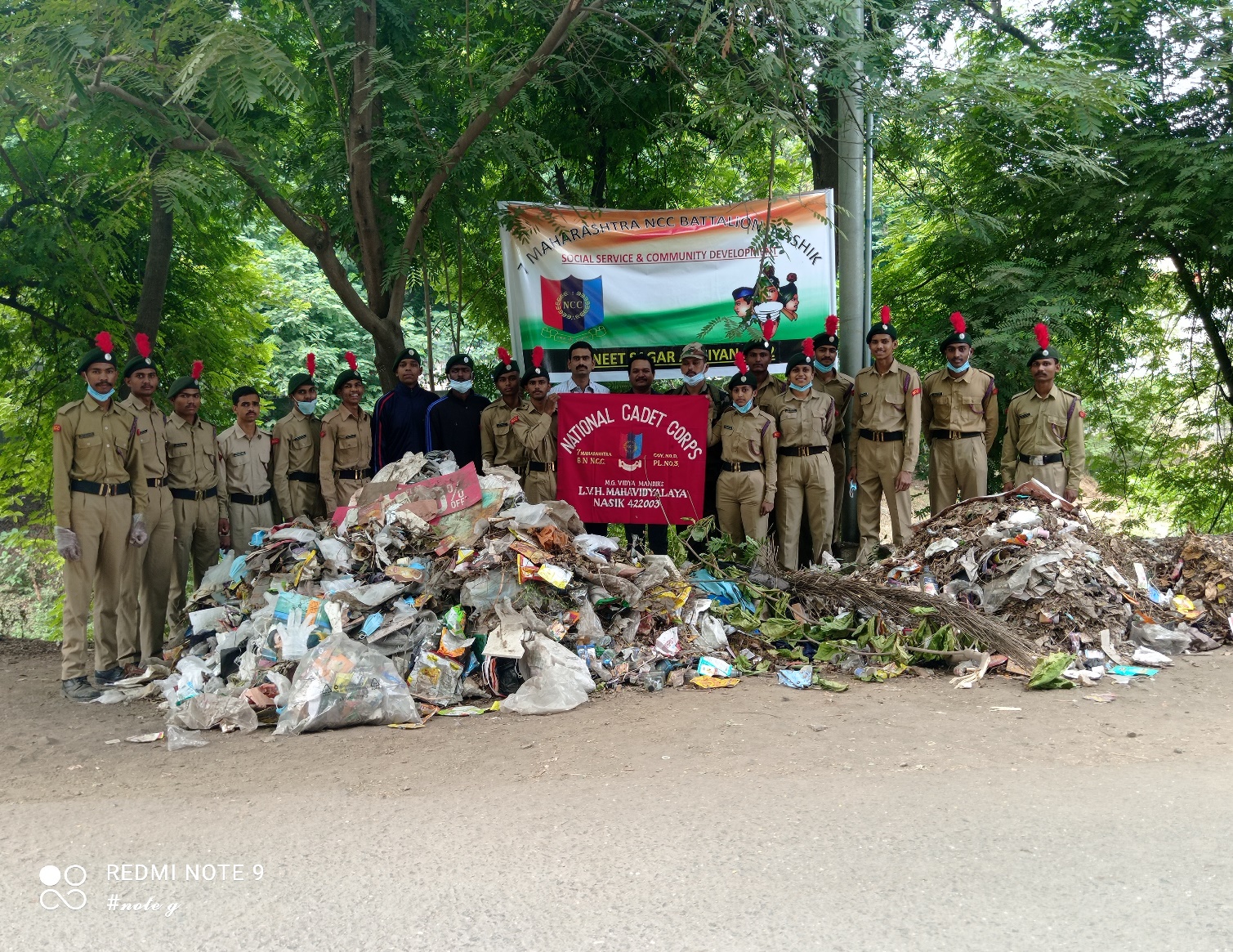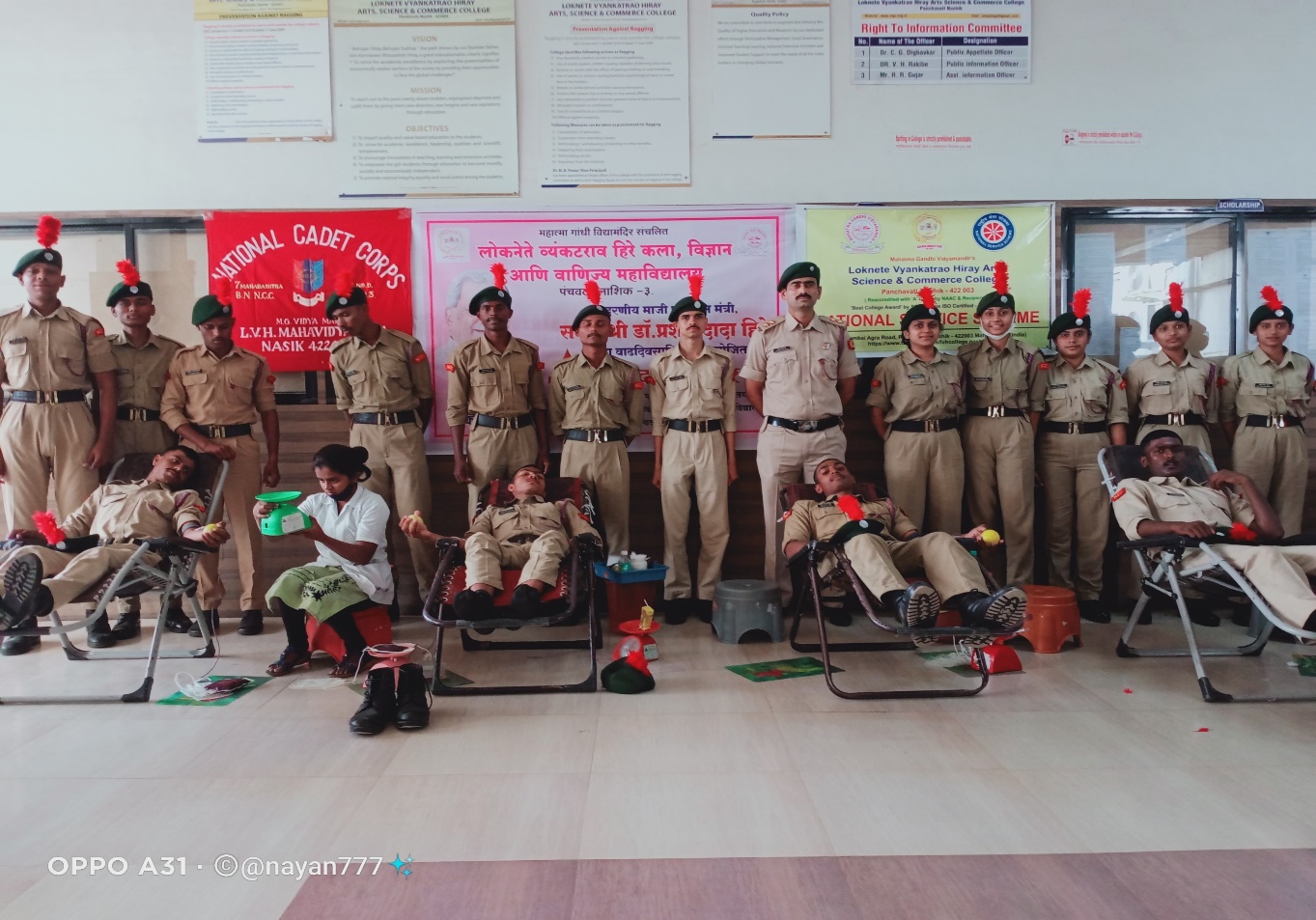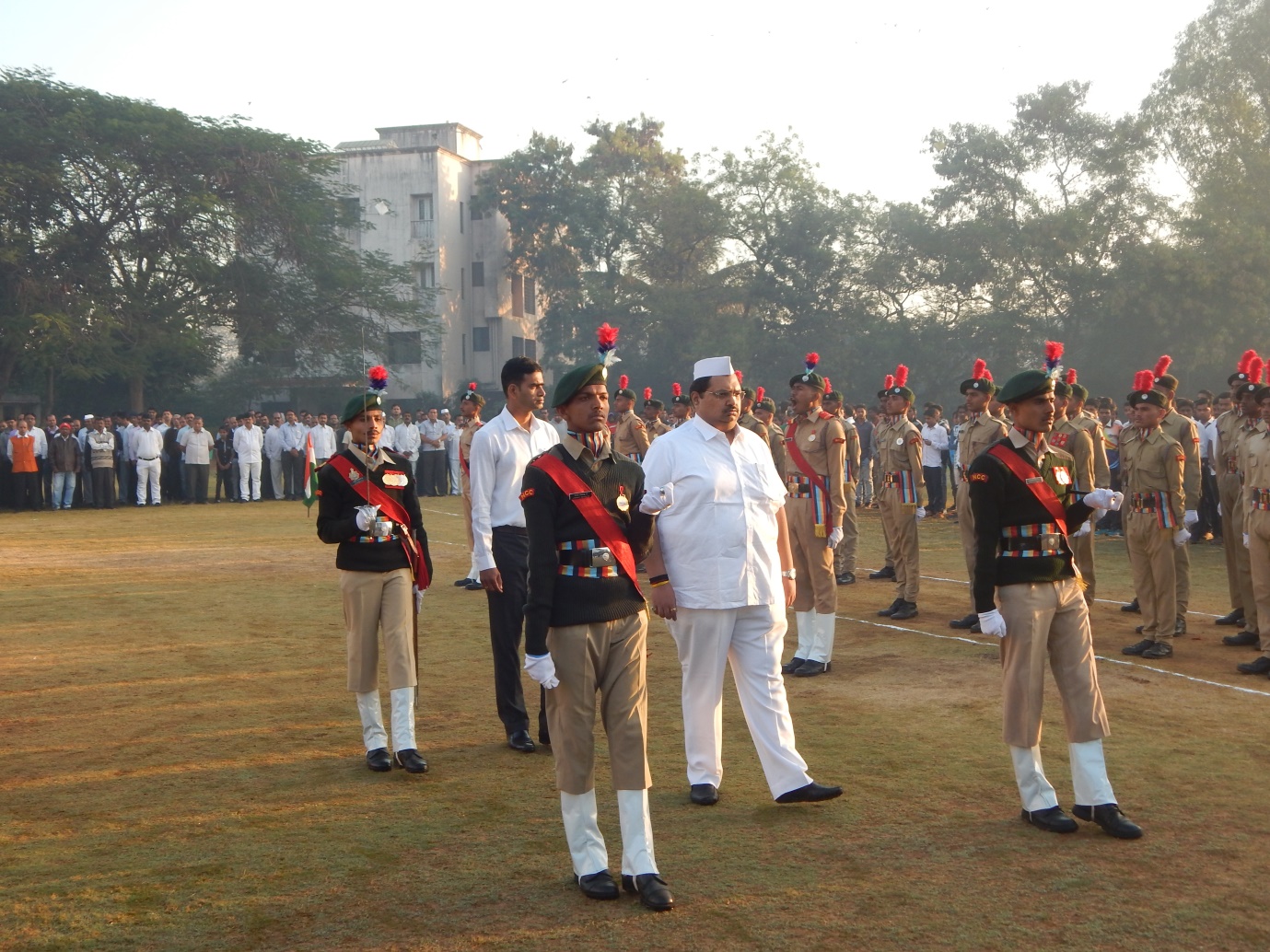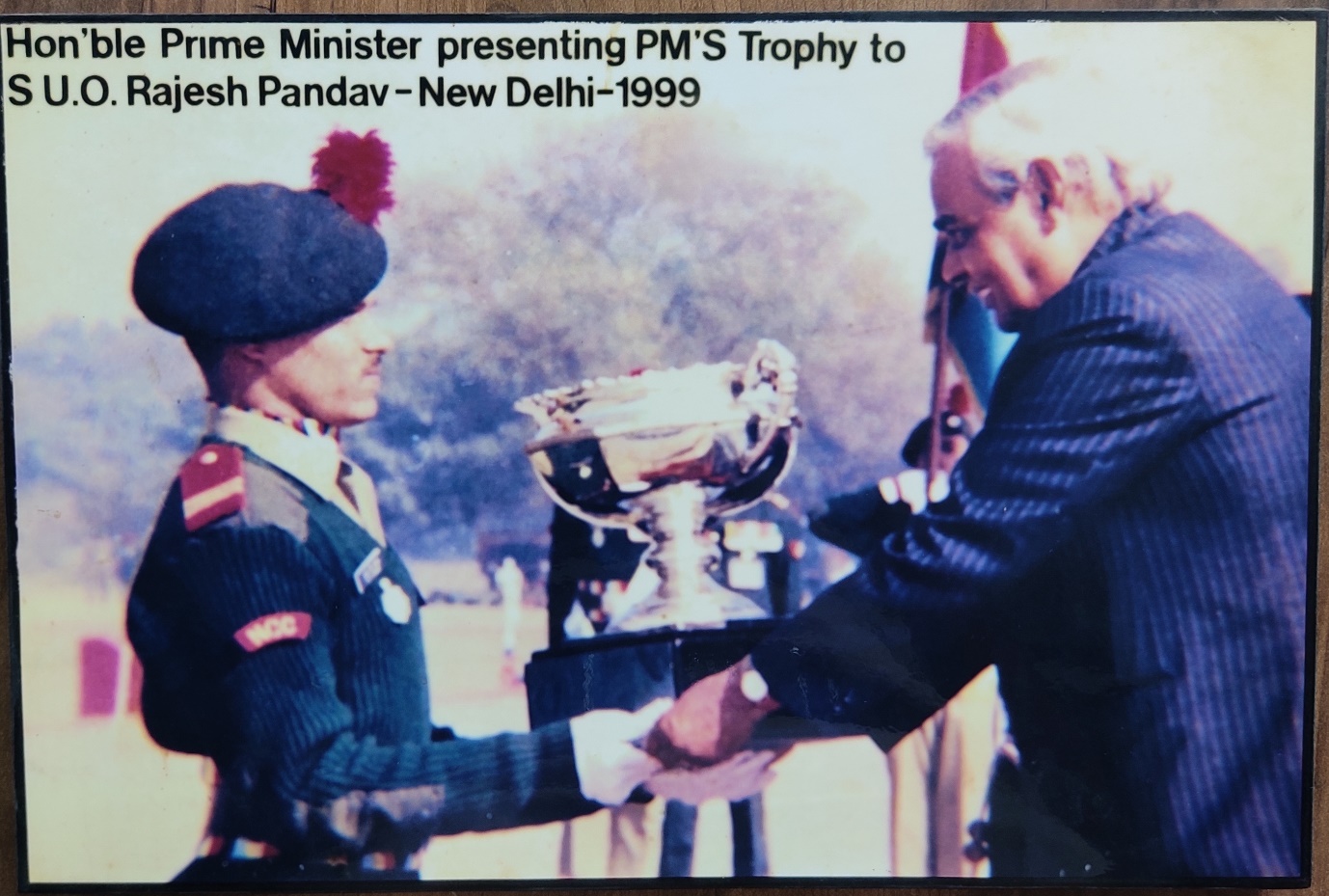Activities
NATIONAL CADET CORPS (ARMY WING)
7 MAH BN NCC NASHIK COY ‘D’, PLATOON NO. 12
AIMS
- To Create a Human Resource of Organized, Trained and Motivated Youth.
- To Provide Leadership in all Walks of life and be Always Available for the Service of the Nation.
- To Provide a Suitable Environment to Motivate the Youth to Take Up a Career in the Armed Forces.
- To Develop Character, Comradeship, Discipline, Leadership, Secular Outlook, Spirit of Adventure, and Ideals of Selfless Service amongst the Youth of the Country.
Genesis
The Cadet Corps Committee which was formed on 29 Sep 1946 with Pt HN Kunzru as chairman held six meetings in South Block, New Delhi. At the same time, Pt HN Kunzru formed sub-committees which were sent on study tours in all the main provinces of pre-independent India including provinces which are now located in Bangladesh and Pakistan. One sub-committee was also sent on tour to Great Britain and France from 15 Feb 1947 to 31 Mar 1947 to study the Youth and Cadet organisations in those countries.
The Cadet Corps Committee carried out exhaustive study of the problem of youth in India. Its sub-committees after their tour at home and abroad submitted their report to the Govt of India in Mar 1947. Soon after the report was submitted, a far reaching political development began to impact the country, due to which the Cadet Corps Scheme had to be kept in abeyance. The religious strife which then was at its zenith, ultimately led to the partition of the country into India and Pakistan
On the stroke of midnight of 14/15 Aug 1947, India achieved her independence. Immediately after independence, India was confronted with problems of formidable magnitude concerning not only repatriation of millions of displaced persons from Pakistan but also a full scale invasion of Kashmir by the Armed tribesmen supported by Pakistan. The armed forces had to rush to retrieve Kashmir at a time when they were already pre-occupied with the internal problem of maintaining law and order during the country's initial stage of consolidation.
The war in Kashmir and the consequent loss of a portion of Indian territory; the open support of Western Powers to Pakistan in the Security Council of the United Nations, made it more than evident to the Indian leaders that they not only had to strengthen the Armed Forces but also create sufficient strength of reserves, who could take up arms, when required. The gravity of time and event found expression in the Indian Legislature through anxious and pressing demand for military training of young men and women throughout the country.
At this juncture, Prime Minister Pt Jawaharlal Nehru at the behest of Sardar Baldev Singh, the then Defence Minister and Sardar Vallabhbhai Patel, then Home Minister, took out the Kunzuru Committee Report for a serious study from the shelves of the Defence Department. On 05 Dec 1947, after being approved by the Defence Committee the copy of the Cadet Corps Committee Report was sent to the Chief Secretaries and Chief Commissioners of all Provincial Govt (now called State Govt) for their comments. The consent of Provincial Govt were required because they were responsible for the administration of the educational institutions in their respective provinces and thus the success of the Cadet Corps scheme largely depended on their initiative. Replies received from the provinces in Jan 1948, show that they all agreed in principal with the Cadet Corps Scheme submitted by the Kunzuru Committee.
Birth of the National Cadet Corps
The Kashmir War of 1948 taught a very important lesson to India, that freedom needs to be protected by strong Armed Forces. Its immediate manifestation was that the recommendations of Kunzuru committee were placed before the Constituent Assembly (Legislature) on 13 Mar 1948. A draft Bill was sent to the Constituent Assembly (Legislative) on 19 Mar 1948, which evoked great interest and enthusiasm amongst all members. After due deliberations and amendments, the Bill was passed by the Assembly on 08 Apr 1948. The Central Govt accepted the opinion of the Provincial Govts and the Standing Committee's recommendations for the formation of a Cadet Corps which was to be named as "National Cadet Corps", as recommended by the Kunzuru Committee.
The Bill received the assent of the Governor General on 16 Apr 1948, and the National Cadet Corps came into being by an Act of the Parliament Act No. XXXI of 1948 designated 'The National Cadet Corps Act 1948'. This Act with 13 clauses, prescribed the formation of the National Cadet Corps in India.
The first step in the process of raising of the NCC was setting up of the NCC Secretariat now called Headquarters Directorate General NCC. In fact, even before the NCC Bill was passed by the Constituent Assembly (Legislative), the Ministry of Defence had set up the nucleus of the NCC Secretariat, with Col (later retired as Chief of Army Staff) Gopal Gurunath Bewoor as first Director of the NCC. He took over as Director of NCC on 31 Mar 1948.
Motto
“Unity and Discipline”
Core Values of NCC:
The NCC is a responsive, learning and continuously evolving organization. Its activity is guided by certain core values that we endeavor to instill among all ranks of the NCC.
These include the following
- A sense of patriotic commitment to encourage cadets to contribute to national development.
- Respect for diversities in religion, language, culture, ethnicity, life style and habitat to instill a sense of National unity and social cohesion.
- Abiding commitment to learn and adhere to the norms and values enshrined in the Indian Constitution.
- Understanding the value of a just and impartial exercise of authority
- Ability to participate in community development and other social programme
- A healthy life style free of substance abuse and other unhealthy practices.
- Sensitivity to the needs of poor and socially disadvantaged fellow citizens.
- Inculcating habits of restraint and self-awareness
- 8. Inculcating habits of restraint and self-awareness
- 9. Understanding the values of honesty, truthfulness, self-sacrifice, perseverance and hard work.
- 10. Respect for knowledge, wisdom and the power of ideas.
Cardinals Discipline
- Obey with Smile
- Be Punctual
- Work hard and without fuss.
- Make no excuses and tell no lies.
NCC Oath
- I do hereby solemnly promise that I will serve my motherland most truly and loyally, and That I will abide by the rules and the regulations of the National Cadet Corps.
- Further under the command and control of my commanding officer I will participate in every camp most sincerely and most whole-heartedly.
Photo Gallery
Pledge
“We the cadet of the national cadet corps, Do solemnly pledge that we shall always uphold the unity of India. We resolve to be disciplined and responsible citizen of our nation. We shall undertake positive community service in the spirit of selflessness And concern for our fellow beings”.
प्रतिज्ञा
प्रतिज्ञा
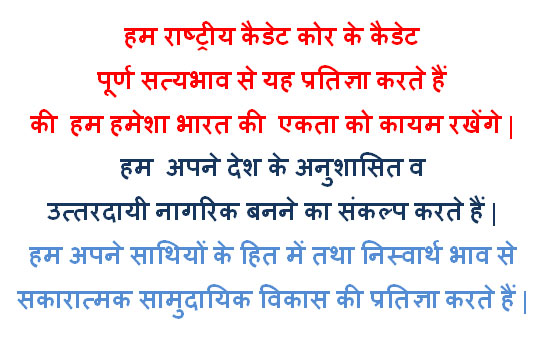
NCC Flag
The NCC flag for various units of the NCC was first introduced in 1951. The flag was of same pattern, colour and size as was used by various regiments of the Army. The only difference was that it had the NCC badge and unit designation placed in the centre. Later on it was felt that the flag should be in keeping with the inter-service character of the Corps. In 1954 the existing tricolour flag was introduced. The three colours in the flag depict the three services of the Corps, red for the Army, deep blue for the Navy and light blue for the Air Force. The letters NCC and the NCC crest in gold in the middle of the flag encircled by a wreath of lotus, give the flag a colourful look and a distinct identity.
NCC Flag

NCC Song
NCC Song
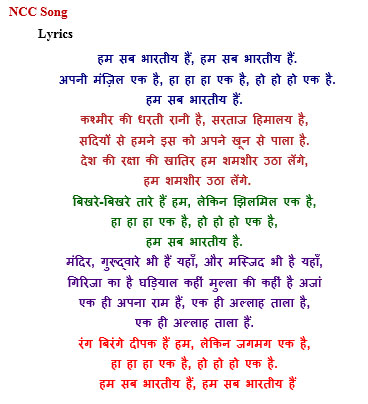
Video Song Link:
https://www.youtube.com/watch?v=2O6gyA6p8D4Intake Capacity
Total intake capacity is 50 Cadets for three training years. Out of 50 cadets 34 seats for Senior Division (Boys) and 16 Seats for Senior Wing (Girls).
TRAINING EVENTS
- ATC-ANNUAL TRAINING CAMP
- CATC-COMBINED ANNUAL TRAINING CAMP
- BLC-BASIC LEADERSHIP CAMP
- ALC-ADVANCE LEADERSHIP CAMP
- TSC-THAL SAINIK CAMP
- RDC-REPUBLIC DAY CAMP
- NIC-NATIONAL INTERGRATION CAMP
- RCTC-ROCK CLIMBING TRAINING CAMP
- ADV-ADVENTURE TRAINING
- MTN-MOUNTAINEERING COURSES
- VSC-VAYU SAINIK CAMP
- NSC-NAU SAINIK CAMP
- ADVENTURE
- Para Sailing
- Sailing
- Microlite Flying
- Trekking
- Para Basic
- Slithering
- Mountaineering
- In-land expeditions
- Camel Safari
- Scuba Diving
- Hot Air Ballooning
Activities Run by NCC Unit
NCC unit of our college has undertaken various activities regarding community development every year such as
- International Yoga Day
- Swachh Bharat Abhiyan
- Tree Plantation
- College Campus Beautification
- Blood Donation
- Cleanliness Drive
- Volunteering during various festivals
- Pulse Polio Programme
- Environmental Awareness Programme
- Road Safety Programme
- Against Open Defecation Awareness Rally Etc.
Incentives to NCC cadets
- DG, NCC scholarship
- Bonus marks in the University exam
- Preference for State Services and reservation of seats for higher educational studies in certain states.
- NCC also provides appropriate compensation for NCC High risk activities.
Benefits of Joining NCC
Indian Army
- In every regular course of the Indian Military Academy (IMA), 32 vacancies are reserved for the ‘C’ certified NCC candidates. But to join IMA it’s a must for all the candidates to be declared successful by the Services Selection Board.
- The cadets with ‘C’ certificate are exempted from CDS examination conducted by UPSC. But for this, the cadet must have ‘A’ or ‘B’ grade in ‘C’ certificate.
- NCC ‘C’ certification offers you 10–15 bonus marks in paramilitary forces recruitment i.e. BSF, CISF, CRPF, SSB etc.
- If you have NCC ‘C’ certificates then your written exam will be waived off for the post of Soldier GD.
Public Sector
- Many organizations from the public sector give advantages to the cadets with ‘C’ certification like Indian Airlines, Pawan Hans Ltd, The National Small Industries Corp. Ltd. Reliance Global Corporate Security And many more.
- A part of this, many companies from private sector consider the NCC certificates as an advantage. When you mention the NCC certified or achieved NCC ‘C’ certificate in your resume, it gives a hint about your personality. So we would suggest the students should join NCC not only to join Indian Armed Forces but to be a disciplined person.
PHYSICAL STANDARDS FOR NCC (SD/SW) ENROLLMENT
| Sl. No. | GENDER | HEIGHT | CHEST | WEIGHT |
|---|---|---|---|---|
| 1 | MALE | 168 Cms(Minimum) | 77 cms /82 cms. (After expansion) | Corresponding to height as per medical standards |
| 2 | FEMALE | 155 Cms(Minimum) | Not applicable | Corresponding to height as per medical standards |
PPT STANDARDS FOR NCC (SD) BOYS ENROLLMENT
| SR NO | NAME OF TEST | Excellent | Good | Satisfy |
|---|---|---|---|---|
| 1 | 1600 METER | 5.00 MIN | 5.10 MIN | 5.25 MIN |
| 2 | PUSH UP | 20 | 15 | 10 |
| 3 | BENT KNEE SITUP | 25 | 20 | 15 |
PPT STANDARDS FOR NCC (SW) GIRLS ENROLLMENT
| SR NO | NAME OF TEST | Excellent | Good | Satisfy |
|---|---|---|---|---|
| 1 | 1200 METER | 5.00 MIN | 5.10 MIN | 5.25 MIN |
| 2 | PUSH UP | 15 | 10 | 5 |
| 3 | BENT KNEE SITUP | 20 | 15 | 10 |
CEE PATTERN FOR NCC ENROLLMENT
| SR NO | NO OF QUE | QUE PATE | MARKS PER QUE | TOTAL MARKS |
|---|---|---|---|---|
| 1 | 40 QUE | OBJECTIVE | 01 MARK | 40 MARKS |
| 2 | 02 QUE | SHORT ANSW | 2.5 MARK | 05 MARKS |
| 3 | 01 QUE. (ANY ONE) | LONG ANSW | 05 MARK | 05 MARKS |
| Total | 42 QUE | TIME : 1Hr | 50 MARKS | |
NCC Officer (A.N.O)
| Sr. No. | Name and Qualification of the Officer | Period | Photo |
|---|---|---|---|
| 1 | Maj D.S.Shinde M.Com., M.Phil. | 1986 to 2017 |  |
| 2 | Lt S.N.Sonawane M.Com. M.A.(Eco), B.Ed., SET. | From 2017 | 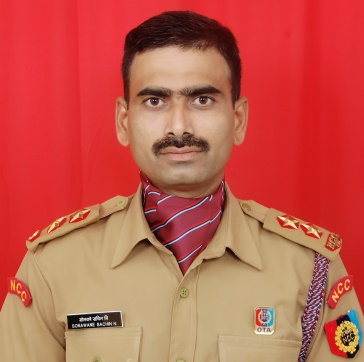 |
Certificate Examination
- “B” Certificate
- “C” Certificate
To appear cadet must have undergone training of two years in senior division/ wing with minimum 75% attendance. Must have attended one Annual training Camp. exam conduct by 7 Mah. Bn. NCC Nashik
To appear cadet must be in passion of “B” Certificate. Must have 75% attendance. Must have attended two Annual training Camps. exam conduct by NCC Gp Hq Mumbai ‘B’.

